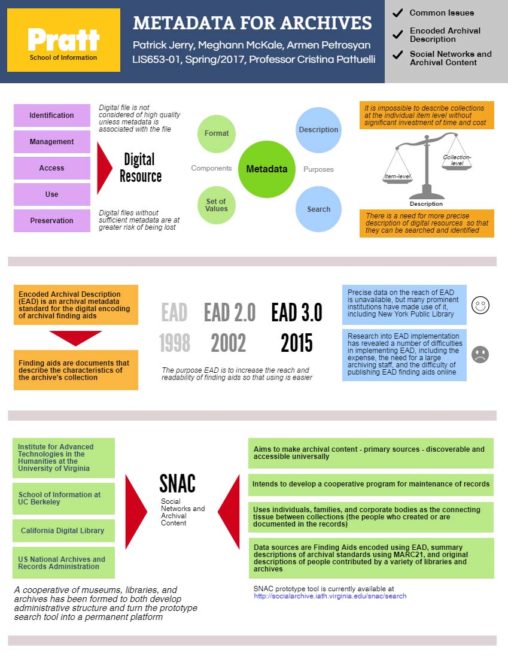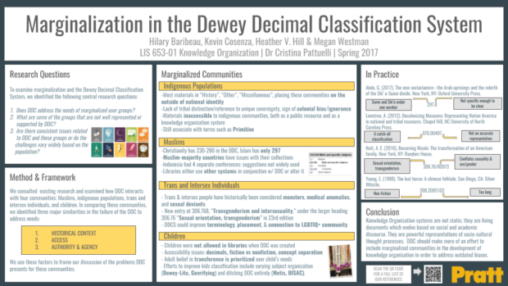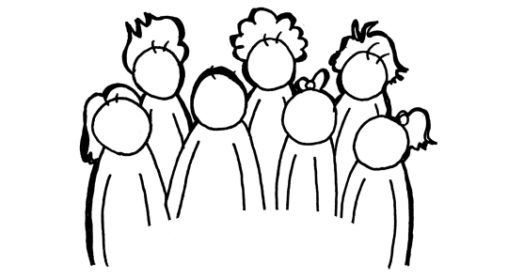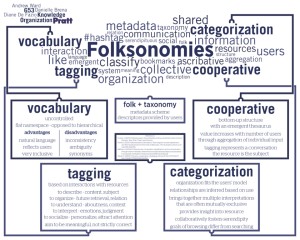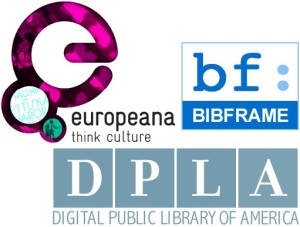Tag: knowledge organizationPage 1 of 2
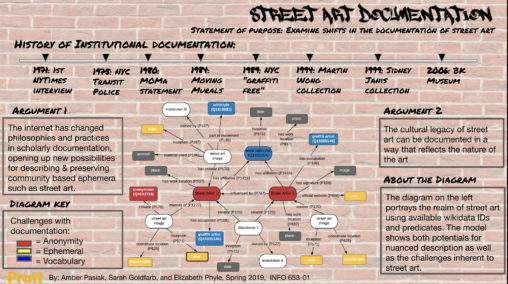
By nature street art resists documentation. It is always ephemeral and often illicit and anonymous. Nevertheless street art is a highly skilled form of expression that reflects its place of creation. This projects summarizes the challenges to scholarly documentation of street art, as well potential solutions.
Mock grant proposal to support the improvement of the British Museum’s existing provenance linked data for its collection of 100,000+ Egyptian-made cultural artifacts. The expansion of the British Museum’s provenance linked data will allow the museum’s collection to be more fully represented in linked data visualizations, while making visualizations of the artifacts themselves more comprehensive, improving scholars’ capacity to research the histories of these artifacts and those of the cultures that produced them.
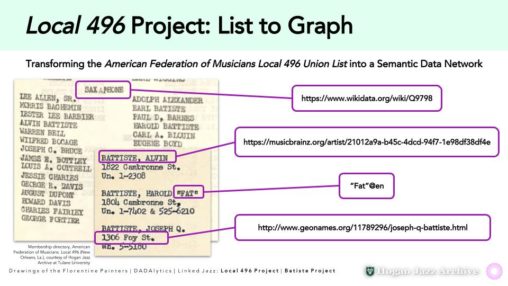
The Local 496 Project transforms the American Federation of Music’s Local 496 union list into a semantic data network. This document is a 1940’s directory of the segregated African-American chapter of New Orleans jazz musicians. This project will highlight the Batiste family network, many of whom are listed in the directory.
In 2017, National Archives and Records Administration (NARA) approved Immigration Customs Enforcement (ICE)’s request to destroy records of in-custody deaths, assaults, and misconduct in timelines that range from 3-20 years. This project explores the history of ICE’s recordkeeping practices and examine NARA’s justification for this appraisal.
This presentation provides an technical overview of initiating Linked Open Data (LOD) in the Whitney Museum of American Art as part of the 2017-2018 LOD for Museums Fellowship.
Our research briefly examines the evolution of hashtags from an online organizational tool to a cultural phenomenon that serves a rhetorical function as a paralinguistic communication method. We include an analysis of the role of hashtags as image annotation metadata and as a framework for digital library taxonomies.
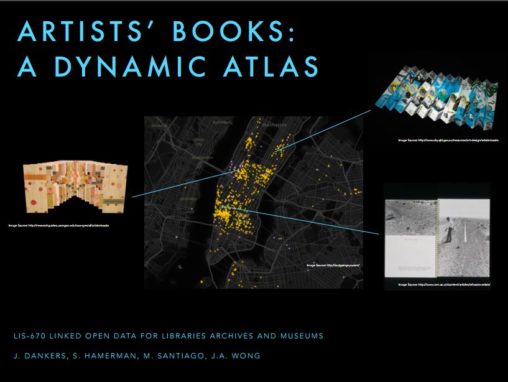
The project is a mock IMLS Grant Proposal for “Artists’ Books: A Dynamic Atlas.” This pilot project will use linked open data to create a dynamic mapping interface that indicates the home libraries of artists’ books located within New York. Led by the MoMA Library in partnership with the Frick Collection, Brooklyn Museum, Whitney Museum, and Metropolitan Museum, the dynamic atlas will deepen engagement with these unique collections; allow users to visualize connections between artists, books, and institutions; and make project data available for use on the open web.
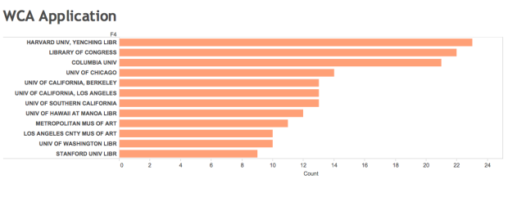
This project explores library collection assessment tools and methodologies to locate institutions with the most comprehensive coverage of Korean modern art books in the US.. The process evaluates two collection-based electronic data mining methods and experiments with OCLC’s WorldCat FirstSearch as an assessment tool.
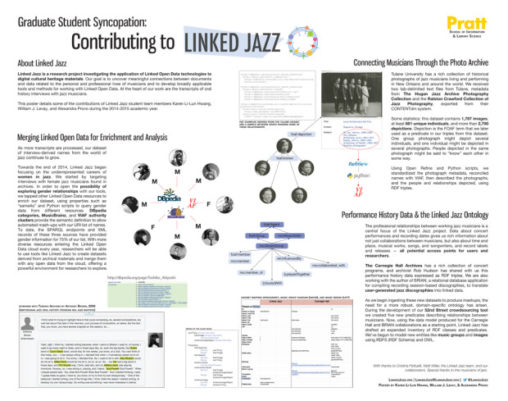
This poster highlights our research as student members of the Linked Jazz project, an ongoing exploration in applying Linked Open Data (LOD) technologies to cultural heritage materials. Research directions include the use of LOD for dataset enrichment in digital humanities research; creating RDF triples to describe image resource types; and mapping elements from various music and jazz databases to assign entities and properties from ontologies.
Panel discussion exploring the current methodologies regarding the documentation, description, and management of artist records and their works of art in three distinct professional environments– working with a living artist, working in a foundation, and working in a museum setting.
This project centered on the creation of a linked-data friendly JSON-LD schema for storage and retrieval of cemetery records. I used python scripts to query a crowd-sourced database (BillionGraves.com), normalize the data and ingest it in the JSON-LD schema.
Music Digital Cataloging An overview of music cataloging in the digital age, with special attention to the treatment of genre. A brief history, various current approaches, from controlled…
![from MARC to BIBFRAME [!] - oster for #infoshow2018 by Sarah Adams](https://studentwork.prattsi.org/infoshow/wp-content/uploads/sites/2/from-MARC-to-BIBFRAME--508x381.jpg)
